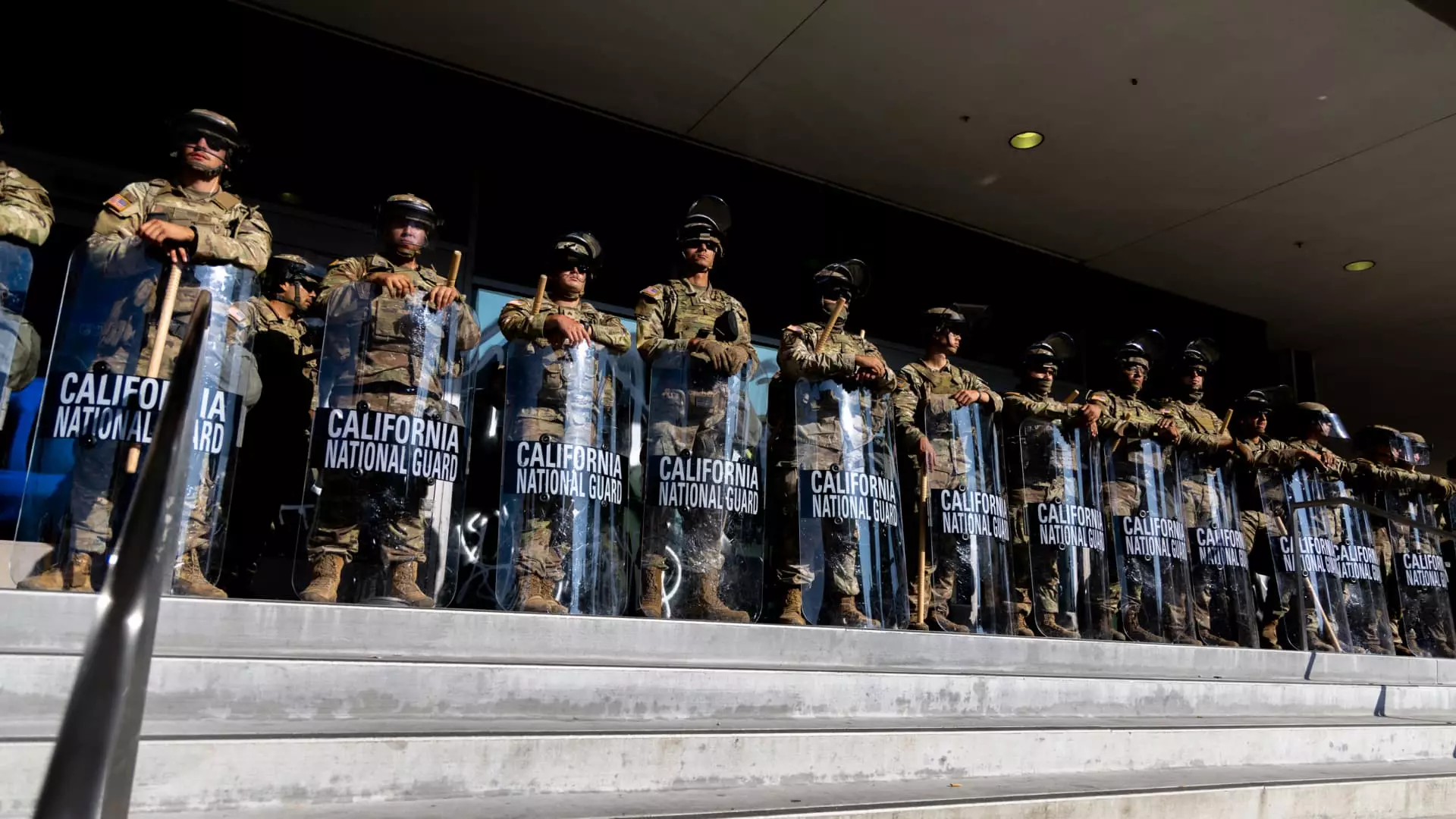In a striking display of executive overreach, the recent decision by the 9th U.S. Circuit Court of Appeals has allowed President Donald Trump to maintain control over National Guard troops deployed to Los Angeles. This unprecedented move, marking the first time a president has commandeered state National Guard forces without gubernatorial approval since 1965, raises serious questions about the balance of power between state and federal authorities. It is not merely a legal technicality but a chilling signal that the executive branch can override local governance in times of dissent, thereby eroding the very fabric of state autonomy.
The appeals court’s ruling halts a previous decision by U.S. District Judge Charles Breyer, who deemed Trump’s actions illegal and reminiscent of authoritarianism rather than a democratic response to civil unrest. The judge’s assertion that the protests in Los Angeles did not rise to the level of rebellion clearly reflects the legal boundaries set forth for federal intervention, yet those boundaries seem to be disregarded by a court that opted for a broad interpretation of presidential powers. This decision could pave the way for future administrations to employ similar tactics, elevating a dangerous precedent that threatens civil liberties and local governance.
The Justification of Force
The Trump administration claims that the deployment was necessary to restore order amidst reports of violence against federal officers and property. However, this rationale raises more questions than answers. While the government’s interest in public safety is undoubtedly legitimate, the decision to mobilize military forces against civilian protesters who were expressing their constitutional rights turns that interest into a blunt instrument of intimidation. It remains imperative to distinguish between legitimate law enforcement response and military escalation in domestic matters.
The imagery of armed guards standing in defiance of peaceful protests sends a chilling message: dissent may not be tolerated. The court’s conclusion that there was a defensible rationale is particularly troubling, as it implies that the potential for violence justifies extreme measures—risking the liberties afforded to citizens by the Constitution. Such an attitude could cultivate an environment where dissent is trivialized or demonized, repressing those who dare to challenge the status quo.
The Implications of the Ruling
As the ruling unfolds, the implications become increasingly pronounced for Trump’s engagement with other Democratic-led states. His administration has shown a pattern of undermining local authority and prioritizing divisive immigration policies targeted towards urban areas that challenge his policies. The use of National Guard troops to assert federal dominance could easily become a blueprint for future conflicts between state and federal governments, especially when local leadership diverges from the federal agenda.
Additionally, the unanimous decision from the appeals panel, including two judges appointed by Trump, raises concerns about impartiality. Critics rightfully question whether the judiciary has become politicized, as past rulings appear to reflect a trend of judicial endorsement of executive actions that overreach constitutional boundaries. Without checks and balances, an alarming shift could normalize the military presence in domestic issues, fundamentally altering the relationship between citizens and their government.
A Call for Vigilance
As the landscape of American governance continues to change, it is vital for citizens, lawmakers, and judges alike to remain vigilant against the encroachment of federal power into state affairs. This case is not just about Trump or the National Guard; it encapsulates an ongoing struggle for the soul of American democracy. The president’s use of military force in civil situations demands scrutiny and should galvanize action from those who value a democratic society focused on civil liberties and local governance.
In supporting social justice vehemently while simultaneously respecting the rule of law, there must be a steadfast commitment to resisting authoritarian impulses disguised as necessary measures for order. The ideological currents that have led to this moment call for a critical reassessment of power, urging us to advocate for a more equitable and democratic approach that elevates the voices of ordinary citizens rather than suppresses them under the guise of law and order.


Leave a Reply